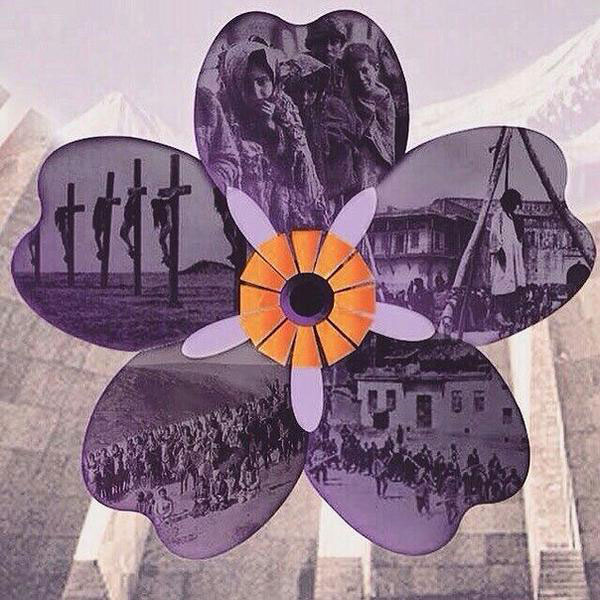For Armenians, the year 2015 was marked by the Centenary of the Armenian Genocide
The centenary elapsed, but it is already evident that our wound does not heal and will not heal. This idea of Forget-me-not symbol incurred for the anniversary, but it is evident that the Forget-me-not would maintain its importance in the future too by being still posted on the windows of the cars and in the people’s hearts. This means that the symbol is selected truly. Nonetheless, the most significant fact associated with the anniversary was that we, unlike previous years, this time gave rise more to the demand of the genocide than to lamentation, weeping and emotional scenes, and this is largely thanks to the stance of the new generation, a generation, whom no one has ever prohibited to remember and to demand. To make my words more comprehensible, let me remind you that until the mid of last century, in the Soviet Armenia, the subject of the Armenian genocide was almost a taboo, and mainly the Diaspora and the Armenian Diaspora were sacredly preserving and maintaining the memory of the Genocide.
We would be mistaken to say that the citizens of the Soviet Armenia had forgotten the genocide. Especially the migrants and their descendants could never forget the genocide. Simply, the regime did not allow them to speak out their memory. And only after the post-Stalin thaw, they voiced them. The poets, one after another, began writing poetry and poems about the genocide, and there was a moment that the schools pupils were more reciting Shiraz, Sevak, Kaputikian and Emin rather than even Siamanto or Ruben Sevak. This is the brief history of the hundred years following the genocide, which can be called a period of preservation, restoration and enhancement of the memory.
Now, an entirely new time begins for Armenians. From this time onward, we should not only remember and demand but should also think seriously about how to remember and how to demand, as well as when to remember and when to demand. Addressing the issue of Genocide in a wrong place, wrong time and wrong way can provide the opposite effect, which happened during the “Eurovision” song contest. We all saw and understood that we should not present a song on Genocide at the light genre of the song festival. We also saw and understood that we should not sing a song about the Genocide with a smile on the face. And importantly, we also understood that we should not present a mediocre song about the Armenian Genocide. And, most importantly, we understood that the Armenian Genocide issue should not be abused. And to ultimately understand all of this, we really worth failing in this contest. Even the Diaspora was reluctant to grant votes to this song, although the only highest 12 votes for this song, in my opinion, was against from the Diaspora, from Javakheti-Armenians and Tbilisi-Armenians.
Read also
And ultimately. The “Eurovision” contest Armenian broadcasters need to understand that the main goal of this quite widespread contest is to identify a good song and a good singer, and instead of calls to necessarily vote for our song, they need to urge voting in favor of the good song and the good singer. Anyway, it will not change much. And even in case of defeat, we should not whimper that “our song was a good one, but they did not understand.” A good song is clear to everyone. As well as a good novel, short stories, and poetry. As well as a good film. Like, for instance, the film “Mayrig”, which is also about the genocide and is understood and dear to everybody. We need to remember this lesson always and demand from our creators to compose understandable and high-class works. Especially if they are referring to the Armenian Genocide. And if there are no such works, it is not necessarily to come up with this subject. And if there are such works, we could send, for example, Sona Shahgeldyan to this contest who with her poor Russian and poor English would take a more honorable place. As she took in the Jūrmala. After all, the “Eurovision” in not a poetry but a music contest. But this is entirely a different subject that requires addressing.
Voskan YEREVANTSY
“Aravot” daily





















































